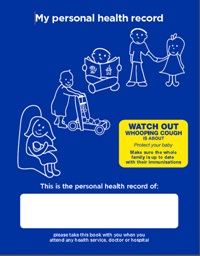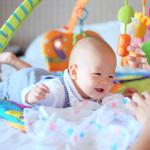
Developmental Milestones
In the first 12 months of your child’s life, your baby is learning and developing every day. During this time, they will reach many different milestones.
There are important times that you need to see a Child and Family Health Nurse to check that your child is developing well:
-
1-4 weeks
-
6-8 weeks
-
4 month immunisations
-
6 months
-
12 months
-
18 months
-
2 years, 3 years and 4 years
Click here to find your local Child and Family Health Nurse.
These milestones are reflected in how they play, learn, speak, behave and move. Your baby’s development can be looked at through five categories.
-
Physical Development
-
Social Development
-
Emotional Development
-
Cognitive Development
-
Language Development
It is important to remember that not every child will reach the same milestone at the same time.
Birth to 4 months
| Developmental Area | What most babies do at this age: |
|---|---|
| Physical |
|
| Social |
|
| Emotional |
|
| Cognitive |
|
| Language |
|
|
Please seek advice from your GP, Paediatrician or |
|
4 - 8 months
| Developmental Area | What most babies do at this age: |
|---|---|
| Physical |
|
| Social |
|
| Emotional |
|
| Cognitive |
|
| Language |
|
|
Please seek advice from your GP, Paediatrician or |
|
8-12 months
| Developmental Area | What most babies do at this age: |
|---|---|
| Physical |
|
| Social |
|
| Emotional |
|
| Cognitive |
|
| Language |
|
|
Please seek advice from your GP, Paediatrician or |
|
For more detailed information on the developmental milestones in your child’s first 12 months, see Pregnancy, Birth & Baby. You can also refer to your “Blue Book”, which has valuable information about your child’s health and development. There is also translated versions of this book available here.

Related Articles:
Baby's First Steps (8-12 months)
Tummy Time and Starting to Move (0-8 months)
[Centers of Disease Control and Prevention, 2021; Australian Children's Education and Care Quality Authority, 2011; Pregnancy, Birth and Baby, 2020.]
Related Topics

By around 8-12 months, your baby will start to move more by crawling, climbing, standing and cruising.

Giving your baby time on their tummy will help to build up strength to lift and hold they head and shoulders up.

